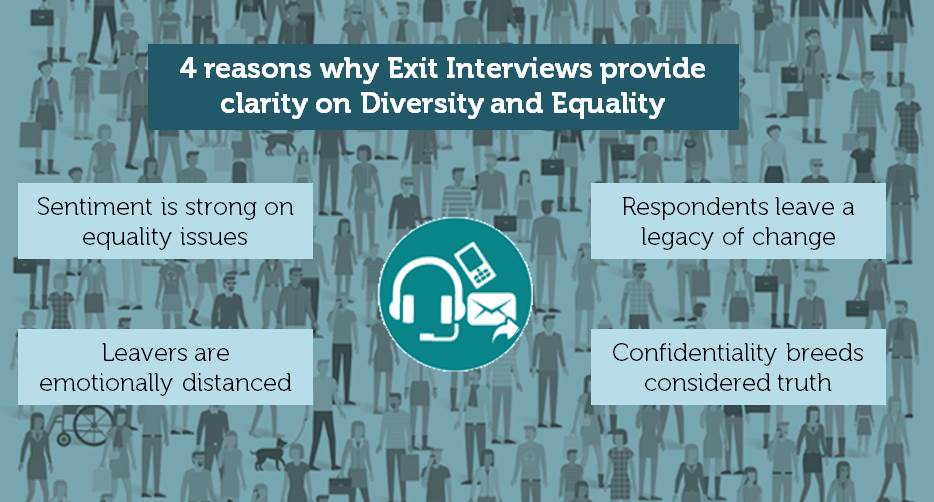If you want to peer under the façade of diversity that many companies carefully maintain, asking their current employees to tell their stories will not reveal much. HR leaders who are passionate about making their workplaces a more equal and inclusive place need to hear these stories so badly, yet few of their current employees will feel brave enough to tell them exactly how things are.
To criticise the culture is to criticise HR, so what reason would a current employee have to do it?
Unless they had just left the company (and their friends) to move to a new role. If they had the chance to make life better for those friends, do you think they would?
The vast majority jump at the chance.
ResourceBank has been running exit interview campaigns for large companies for a while now. We are usually asked to use them to examine issues of retention, leadership and employer culture, but certain (enlightened) employers wish to dig further on other issues.
Diversity is a hugely important topic currently, so here are four compelling reasons why every company that is interested in diversity should consider asking particular populations of leavers about their experiences of equality and inclusion in the workplace:

1. Sentiment is strong on equality issues.
People care more about equality than they do about training. They will open up if questioned about the treatment of women in the boardroom, yet we really have to dig for insights about how their career development was handled. When memories of past injustices are fresh, all they need is a willing audience.
2. Respondents leave a legacy of change.
We are on this earth to make a difference, and there are few people who don’t respond genuinely (and generously) to questions about how their previous employer could treat their people better. They know that their previous employer is paying to hear their thoughts, so their views won’t be shared in vain.
3. Leavers are emotionally distanced.
Some of these equality discussions might feel emotionally charged to people who are still in that environment, but once someone has left they find it easier to view situations through a more objective lens. It is possible to structure the questions to elicit a balanced view rather than focussing on extreme examples.
4. Confidentiality breeds considered truth.
When people feel that others will judge their words, a filter immediately clouds what they are truly thinking. A fully confidential and/or anonymous exit survey gives the chance to give the unvarnished truth. When the sample size is big enough, it is not difficult to discern the fact from the fiction.
As an experienced outsourced HR partner, ResourceBank cares deeply about the cultures of our clients, and alongside the “normal” exit interview lines of questioning, we feel that diversity could feature far more prominently when companies seek information from their leavers.
We would of course be delighted to discuss any aspect of our exit interview process, but if you did have a particular interest in how this can further your diversity agenda, then we would be particularly pleased.
Diversity matters. Do you know how inclusive your organisation really is?
Maybe your recent leavers can give you an idea?
Contact Charlotte Todd-Smith on 07734 972 679 to discuss how an exit interview process can tell you the diversity reality in your business.
Other articles that you may be interested in:
Why conduct exit interviews?
The importance of an engaged workforce








